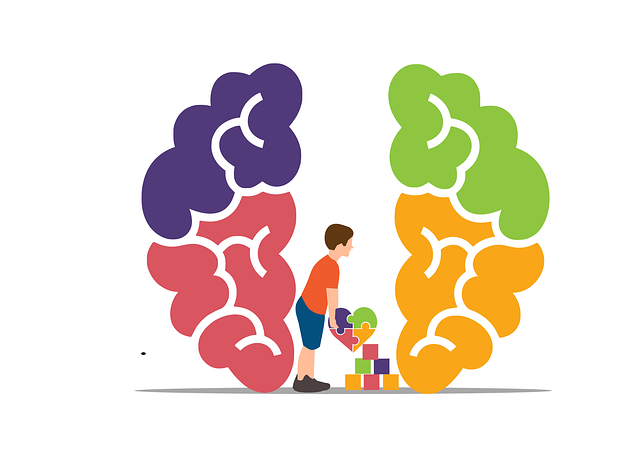In Littleton, addressing postpartum depression (Littleton Postpartum Depression Therapy) involves a structured approach using Resilience, Flexibility, and Mindfulness (RFM) therapy. Therapists assess risk factors, evaluate depressive symptoms' frequency and severity, and tailor interventions like positive thinking exercises and mental wellness podcasts. Cultural sensitivity ensures these strategies resonate with diverse populations. Resilience-building exercises equip parents with stress management tools, preventing burnout and improving well-being. Local initiatives include public awareness campaigns, community workshops, and professional training for healthcare providers, aiming to destigmatize postpartum depression and enhance mental health support for new mothers globally.
“Explore the transformative power of Resilience-focused Maternal (RFM) exercises in alleviating postpartum depression. This article delves into the integration of RFM within Littleton’s postnatal care system, highlighting its potential as an innovative therapy. We examine the role of RFM in enhancing maternal well-being and provide a practical guide to implementation.
From understanding the RFM framework to showcasing success stories, this piece offers valuable insights for healthcare professionals aiming to support new mothers. Discover how RFM can be a game-changer in Littleton’s postpartum depression therapy landscape.”
- Understanding RFM and its Role in Postpartum Depression Therapy
- The Impact of Resilience Building Exercises on Mothers' Well-being
- Implementing RFM in Littleton: A Step-by-Step Guide
- Success Stories and Future Directions for RFM in Postnatal Support
Understanding RFM and its Role in Postpartum Depression Therapy

In the context of Littleton Postpartum Depression Therapy, Understanding RFM (Risk, Frequency, and Severity) is paramount. This framework helps therapists assess and treat postpartum depression by identifying factors that contribute to a mother’s emotional well-being. By examining the risk factors associated with postpartum depression, such as personal history, family dynamics, and cultural influences, therapists can tailor interventions effectively.
RFM analysis also considers the frequency and severity of depressive symptoms. This enables therapists to design targeted strategies, including positive thinking exercises and mental wellness podcast series production, that address specific challenges faced by new mothers. Additionally, cultural sensitivity in mental healthcare practice is integral to ensuring these interventions resonate with diverse populations, fostering a supportive environment for healing and promoting overall mental wellness.
The Impact of Resilience Building Exercises on Mothers' Well-being

Resilience building exercises have been shown to significantly improve mothers’ well-being, addressing issues like postpartum depression that are prevalent in the Littleton community. These exercises equip parents with essential tools for stress management and emotional regulation, helping them navigate the demanding journey of motherhood. By prioritizing mental wellness coaching programs, local initiatives aim to prevent burnout, a common concern among new mothers, fostering a healthier and happier environment for both parents and their families.
Through structured activities focused on enhancing resilience, mothers can develop coping strategies that support their overall mental health. This proactive approach acknowledges the profound impact of a mother’s emotional state on her family’s dynamics and encourages the development of robust support systems. By integrating these practices into their routines, Littleton residents are empowered to cultivate lasting resilience, ensuring better psychological flexibility and adaptability in the face of life’s challenges.
Implementing RFM in Littleton: A Step-by-Step Guide

Implementing RFM (Resilience, Flexibility, and Mindfulness) in Littleton involves a structured approach to address postpartum depression and enhance mental well-being. Here’s a step-by-step guide tailored for this community:
1. Public Awareness Campaigns Development: Start by creating awareness about postpartum depression (PPD) through targeted public campaigns. Educate residents on the signs, symptoms, and available support services in Littleton. This initiative can be led by local healthcare providers, mental health professionals, and community leaders to destigmatize PPD and encourage open conversations.
2. Trauma Support Services Integration: Collaborate with existing trauma support services in Littleton to ensure a comprehensive approach. Offer RFM exercises tailored for individuals who have experienced trauma or are struggling with PPD-related anxiety. These exercises focus on building resilience through mindfulness practices, flexibility in thinking, and adaptive coping strategies.
3. Community Outreach Programs: Launch community outreach programs targeting new mothers and their support networks. Conduct workshops and seminars where participants learn practical RFM techniques to manage stress and overcome challenges post-pregnancy. These sessions can be organized by local clinics, community centers, or volunteer groups dedicated to mental health promotion.
4. Confidence Boosting Activities: Incorporate confidence-building activities into the RFM framework to empower women in Littleton. This might include group discussions, role-playing exercises, or skill-building workshops that encourage self-belief and assertiveness. By fostering a sense of confidence, these activities can play a significant role in overcoming PPD symptoms.
5. Professional Training: Provide ongoing professional training for healthcare providers, counselors, and other front-line workers in Littleton who interact with new mothers. Equip them with RFM tools and strategies to effectively support clients dealing with PPD or related issues.
Success Stories and Future Directions for RFM in Postnatal Support

The implementation of RFM (Resilience, Flexibility, and Mindfulness) exercises in postpartum support has shown promising results, offering a glimmer of hope for new mothers facing challenges like Littleton Postpartum Depression Therapy. Success stories emerging from various support groups highlight the positive impact of these programs on mental health and overall well-being. By integrating RFM practices, individuals learn to navigate life’s transitions with enhanced resilience, fostering a sense of empowerment and improved coping mechanisms. This approach has been particularly beneficial in preventing burnout, a common issue among new mothers, and promoting anxiety relief during an otherwise stressful period.
Looking ahead, the future of RFM in postpartum care holds immense potential. Public awareness campaigns development centered around these practices could help destigmatize mental health concerns post-pregnancy. As research continues to grow, personalized RFM interventions tailored to individual needs may become the norm, further ensuring effective support and improved outcomes for mothers worldwide.
The implementation of Resilient Focused Mindfulness (RFM) as a therapeutic approach for postpartum depression in Littleton has shown promising results, offering a practical and accessible method to enhance mothers’ well-being. By combining mindfulness techniques with resilience building exercises, RFM provides a comprehensive strategy to navigate the challenges of new motherhood. As demonstrated through success stories and ongoing research, this innovative therapy can significantly improve mental health outcomes for Littleton mothers. With its step-by-step guide to implementation, RFM presents a sustainable solution for postnatal support, empowering women to build resilience and find solace in a supportive community.














